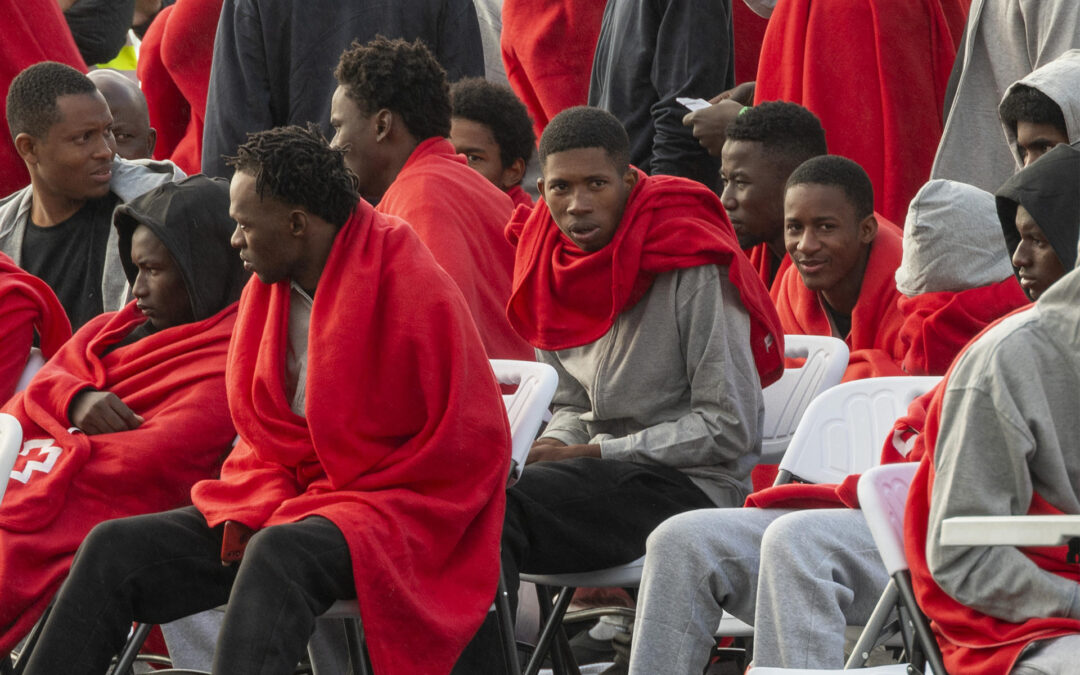Brussels/Prague – Representatives of the member states of the European Union today in Brussels confirmed consensus on the final form of the migration package. According to information from ČTK, the Czechs abstained, with Hungary and Poland against. The stance of the bloc’s states approved today is definitive, the new migration and asylum rules will merely be formally endorsed by EU ministers, specifically at the meeting of finance ministers next Tuesday. The European Parliament supported the package at the plenary session at the beginning of April.
The final form of the migration and asylum pact was agreed upon last December by the negotiators of the European Parliament, the Spanish presidency as the representative of the member countries of the bloc, and the European Commission (EC). The Czech Republic, which had reservations about this compromise, abstained when the agreement was confirmed in Brussels by the ambassadors of the EU countries on February 8th. The Czech government then concluded that the final form of the migration and asylum pact is worse for the Czech Republic than the one it contributed to during its presidency. The Czech Ministry of the Interior stated that the reform steps are less ambitious than expected by the Czech Republic, increasing administrative burdens and reducing the ability to effectively prevent illegal migration at the EU’s external border.
Prime Minister Petr Fiala considers it necessary to go beyond the migration pact and discourage illegal migrants from coming to Europe at all. He stated this in a statement for ČTK. According to the Minister-President, the Czech Republic belongs to a group of countries that want to confront illegal migration vigorously. Interior Minister Víta Rakušan said that the final form of the package is more bureaucratic and weakens the mandatory border procedure compared to the original proposal. However, it is an important first step towards effectively addressing illegal migration. According to him, it introduces mandatory detentions, migrant screenings, and establishes the duties of member countries. However, the Czech Republic wants to go even further in protecting the European space and is actively working on subsequent steps, said Rakušan. “Together with Denmark, Austria, the Netherlands, and other countries, we are preparing specific proposals on how to handle asylum procedures in third countries, measures against smugglers, and improving returns,” he added.
Migration represents a challenge that Europe must deal with and find a common solution, according to Deputy Prime Minister and leader of the coalition Pirates, Ivan Bartoš. “However, the pact does not bring a fundamental solution or advancement, rather more bureaucracy, although there is an attempt for a joint approach. That’s why even our MEPs mostly did not support it,” Bartoš told ČTK. He said the package does not address, for example, the lengthy periods during which people wait in refugee camps for decisions, which instead it prolongs. “This does not help anyone – it increases the risk of radicalization, is more costly for European citizens, and unnecessarily makes refugees suffer in inhospitable conditions,” he said.
The series of regulations also includes more efficient controls of migrants and faster return of unsuccessful asylum seekers to their countries of origin. It also introduces the principle that those EU countries that are overwhelmed by migration pressure will be supported in solidarity by others either by taking over some of the migrants or by offering financial or material support.
 go to the original language article
go to the original language article
